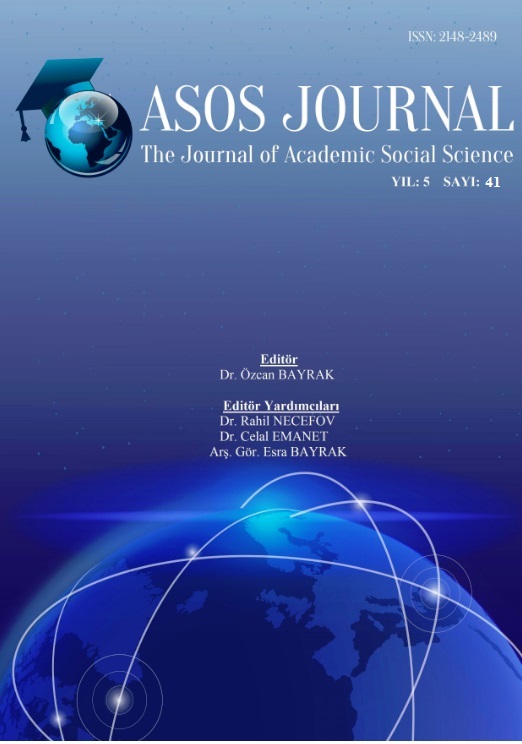Author :
Abstract
1982 Anayasası’nda yer alan haklara, “Temel Haklar ve Ödevler”, “Sosyal ve Ekonomik Haklar ve Ödevler” ve “Siyasal Haklar ve Ödevler” başlıkları altında değinilmiştir. İnsan hakları ise, insanların onur (dignity) ve değer (worth)’inden kaynaklanan, yasal düzenlemeler bu hakları tanısa da tanımasa da tüm insanların sahip olduğu, evrensel ahlakî ilkeler olarak tanımlanabilir. Bu çalışmanın amacı, insan hakları ve anayasa ile ilgili temel felsefi tartışmalara değinerek, 1982 Anayasası’nı insan hakları boyutunda analiz etmektir. Bu amaçla; ilk olarak hak kavramından hareketle insan hakları tanımlanmaya çalışılırken, insan haklarının felsefi temellerine göz atılmaya, insan hakları ile anayasa kavramı arasındaki ilişki vurgulanmaya çalışılacaktır. İkinci bölümde ise, 1982 Anayasası ve insan hakları ilişkisi, Anayasanın devlet felsefesi, temel hak ve özgürlüklere bakışı ve bu hakları ele alışı çerçevesinde değerlendirilecektir.
Keywords
Abstract
The rights in the 1982 Constitution are mentioned under the headings such as “Basic Rights and Assignments”, “Social and Economic Rights and Assignments” and “Political Rights and Assignments”. Human rights, however, as sourcing from dignity and worth of being a human could be defined as universal moral principles which all human beings have whether those rights are recognized them or not. The main aim of this research is to analyze 1982 Constitution in the context of human rights by exploring main philosophical debates regarding human rights and constitutions. To realize this goal, we will at first try to define human rights in line with the ‘rights’ concept. Then, we will try to explore the relation between the concepts of human rights and constitution while recounting deeply on the philosophical fundamentals of human rights. In the second part of the research, the relation between 1982 Constitution and human rights will be analyzied in the framework and regard of ‘state philosophy of the Constitution’, basic rights and liberties and their status in the Constitution.





